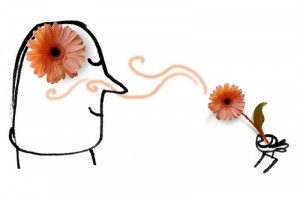News
-
Christmas Calendar
Our schools will be closed from 22nd Dec until 7th Jan
-
Xmas Raffle
Anunci GUANYADORS; i 498 RECAPTATS!
-
REGALA EXPERIÈNCIES EN ANGLÈS
Amb GRANS DESCOMPTES si reserves ara!
In Search of What Is Lost: Taste, Melody & Memory
Friday, 1 April 2016Read our April article.
“No sooner had the warm liquid, and the crumbs with it, touched my palate than a shudder ran through my whole body, and I stopped, intent upon the extraordinary changes that were taking place…”
These words come from near the beginning of Marcel Proust’s epic, multi-volume work In Search of Lost Time (À la Recherche du Temps Perdu), in which its narrator soaks a madeleine cake in a cup of tea. The smell and flavour of the delicacy causes an extraordinary surge of memory, and one which transports him to a Sunday morning of his childhood long past. Suddenly he finds himself not only remembering, but really feeling “the square where I used to be sent before lunch, the streets along which I used to run errands, the country roads we took when it was fine.”
Perhaps you’ve had your own Proustian experience; I know I have. A few years ago I was sitting on the terrace of a café in Paris. I took a sip of Normandy cider, and the sensation was incredible: the rush of being transported back to my youth and the holidays my family took in France; the pine forests, the beaches and the sun; the thrill of being allowed something that, usually, I would not be. Honestly, I can think of few experiences like it, and it didn’t surprise me when researching this article that the phenomenon is, in fact, a scientifically recognised one.
It is known - in a term coined by Proust - as ‘involuntary memory’: a subcomponent of memory that occurs when things encountered in everyday life evoke recollections of the past without conscious effort. (The first photo featured on its Wikipedia page is that of a biscuit being dunked into a cup of tea, much like Proust’s madeleine all those years ago.) Howard Moss, who edited the poetry section of the New Yorker for almost forty years, noted two key ways in which ‘involuntary’ differs from ‘unconscious’ memory:
1) What stimulates it is immured in objects that decant the original sensation by chance, and only if, luckily, we come across those objects again in later life.
2) It is not, like unconscious memory, an unearthing of the past, but a reliving of the past as the present.
Moss goes on to state that we “truly remember only what we have forgotten,” likening memory itself to a “human form of time,” and also considers music and the role it plays in shaping our consciousness and sense of self. Because if there one thing that rivals taste in terms of evoking memory, it is music: melodies and instrumentation are powerful stimuli, and can often result in the recall of times and experiences long since forgotten - primarily those of our youth, when, perhaps, there is more time to be spent with friends; to indulge in things like listening to music while our identities are being shaped, both by ourselves and external forces. “Music… Removes us from the real world. It can also bring us back,” writes the scholar David A. Powell, in contemplating the works of French writer George Sand, whose use of music as a literary device functions in much the same way as Proust’s use of taste.
There is now a vast body of psychological research that tackles memory in all its forms, from autobiographical to unconscious to involuntary. It is not unreasonable to suggest that this is likely the case simply due to the fact that how memory “works” is, to some degree, as much a mystery as ever; likewise dreams and the inner workings of our minds. There is a lengthy article in the British Psychological Society devoted to involuntary memory which notes the difficulty of studying something unpredictable by its very nature, also equating it with déjà vu, and comprehensively reviewing much of the recent work undertaken in the field.
On a simple level, though, I think involuntary memory is something to be regarded as a wonder, not to be scrutinised too much. The beauty of life lies in its surprises, and things like exceptionally vivid dreams or overwhelming sensations of memory brought on by taste or melody exist to remind us of that fact; that what is unexpected can, sometimes, be revelatory.










 Tel. 93 655 05 58
Tel. 93 655 05 58 Enviar WhatsApp
Enviar WhatsApp



![[...]](https://www.cambridgeschool.com/xtra/imgs/loading.gif)